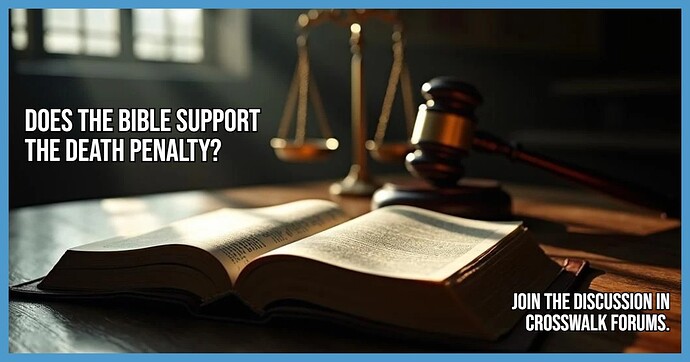Does the Bible Support the Death Penalty?
As Christians reflect on justice, mercy, and the sanctity of life, we invite your voice in Crosswalk Forums.
#DeathPenaltyDebate #BiblicalJustice #christianforums #crosswalkforums #forums #crosswalk #faithcommunity #faithforums
The death penalty has long been one of the most difficult and divisive moral issues for Christians. On one hand, the Old Testament outlines capital punishment for certain crimes. On the other, Jesus teaches mercy, forgiveness, and turning the other cheek. So where does the Bible really stand?
Some Christians point to Genesis 9:6—“Whoever sheds the blood of man, by man shall his blood be shed”—as a divine mandate for capital punishment. Others highlight Jesus’ intervention in John 8, where He prevented the stoning of the adulterous woman with the famous words: “Let him who is without sin cast the first stone.” Does this signal a New Covenant shift?
Even the Sixth Commandment—“You shall not kill”—raises questions. Does it apply to judicial execution? Or only to murder? And how do we reconcile God’s justice with His mercy in a world marred by both heinous crime and human error?
The article below digs into Scripture to explore whether the death penalty violates God’s commands, or if it remains a valid tool of justice under biblical principles.
“The Bible does not give us a simple ‘yes’ or ‘no,’ but it does offer a rich framework for wrestling with the value of life, the cost of sin, and the weight of justice.”
Where do you stand on the death penalty as a Christian?
Does Scripture support it, oppose it—or point us somewhere deeper?
Read the full article here:
